should or should you not "judge a book by its cover"?  Here is the actual source image of fashion model Melissa Baker that I used to create the placeholder cover art for The Just Beyond. The particularly attentive may notice that I distorted her face slightly on that cover for compositional reasons. She does, well, look like a model, and that's appealing enough in itself, but it's not why I chose the picture. Nor is it because she fits my mental image of Vicki, or Beth, or the apparition on the stairs, whichever the cover is supposed to depict (lol), because she doesn't. If you must know, I envision Vicki as more of a Sandra Bullock, and Beth maybe as Nicole Kidman--too bad they're both a touch too old to play those roles in the Oscar-winning movie that will no doubt be made. *cough* No, Ms. Baker appears on my cover simply because this photo is supposedly in the public domain. I sort of wonder if that's actually true, but ultimately it doesn't matter because my cover, and Melissa Baker specifically, will NOT be used with the published book. The publisher is assigning a staff artist to do that and I'll be happy with whatever they think has commercial appeal. Which brings up an interesting question: should or should you not "judge a book by its cover"? We all know the timeworn maxim. And it's good advice as a metaphor. But, ironically, when taken literally, the advice "don't judge a book by its cover" is ludicrous. We all judge books--actual books--by their covers. Not ultimately of course, that is if we proceed to read them, but cover art is absolutely a factor in picking up a book at all. We've all seen book covers that suck you seductively in, as well as those that leave you wondering what the publisher was thinking. :) And they can't help but color our expectations. It's even more true in the ebook world. In a bookstore you can (and I always do) leaf through the pages and see if the writing style, content, and format appeal to you in addition to reading the blurb on the back. While it's often possible to do that online, it isn't always, and when it is, it can't be as convenient and intuitive as it is with a paper book. For myself, in a store I ALWAYS look at a few pages inside a book I'm pondering to buy, and online I NEVER do this. So the impact of the cover art, for people like me, is magnified in the electronic sphere. In fact if the cover art is bland or unappealing, I often won't give the thing a second look. It seems counterintuitive that virtual covers are more important than paper ones, but for me, they are. And I, for one, believe this is warranted. Sumptuous, engaging cover art tells me two things completely apart from what they may reveal about the volume's content. First, it tells me the publisher felt enthusiastic enough about the book's commerical prospects to pay for a talented and probably expensive artist. Second, it tells me that the publisher, and therefore most likely the book itself, is of high quality. Now, I'm not saying a crappy book never appeared on a shelf dressed up like a lipstick-wearing pig. I'm not saying a great cover guarantees a great read. What I am saying is that cover art DOES influence the purchase decision and CAN express something meaningful about the work. If it didn't, why would publishers go to such lengths to get it right? Which brings me to some welcome news about The Just Beyond. Initially the publisher thought the cover art would be delivered in the middle of January, but obviously that didn't happen. I spoke with them this morning and was informed it hadn't been assigned yet. They're ready to do so now, however, and wanted to know if I was partial to any particular concepts. I sent them the covers I've made and said the only element I had a real weakness for was the girl's face in the background. I'd like the rest of the image to convey a sense of otherworldliness, but I don't have a clear preference as to how that be done and I'm sure their artists will have better ideas than I would anyway. And pleasantly, as of now, it appears that's the direction they'll go. They're on board with the faded face concept and the artist will figure out the rest. If it proceeds that way it's great, because, while I am in no way of the opinion that I should have any say in the cover art at all, I was obviously hoping they would do something I would be happy with or at least not displeased. Now it looks like they're going to preserve the concept I've had in my head all along, which is a nice and thoroughly unexpected surprise. So things are moving slowly, but they're moving. :) It seems like a lot more than three weeks have gone by since the pre-publishing work commenced, but that's all it's been and there's absolutely no justification for anxiety or concern. But I can't help feeling some of that. At least I know intellectually that it's irrational. And honestly, as "problems" go, it's a pretty darn good one to have. :) - Mark
0 Comments
it wasn't the usual feeling of being suddenly alert; something physical woke me 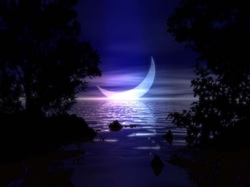 Stick with me on this one, it's not another space jaunt even though it may seem to start out that way. Although... I get up early every day, typically between 4 and 5 AM, sometimes earlier. This morning I woke up at 2:30, and I've learned when that happens to just go with it. Left to its own my body seems to need about five hours' sleep most nights, though sometimes longer. There's no reason to fight it with my flexible existence down here. But this morning it wasn't the usual feeling of being suddenly alert; something physical woke me. I'll get to that in a minute. The first thing I noticed, once I realized that, yes, I wasn't going back to sleep so I may as well get my feet on the floor, was a light outside the house. We have a motion-sensor flood light in the yard, and when it goes off in the middle of the night it's typically a deer wandering through. It's not intrusive enough through the bedroom windows to wake me up by itself, but it is plenty bright. And the light I could see being cast downstairs from the kitchen was too bright for any natural light. Except it wasn't. You'd think after four years I'd recognize it, but it turned out the security light was not on. No light was. What I was seeing was coming purely from the Moon. That's how dark the night sky is here. It's shocking when you come from a city that never truly sleeps, unlike Brookings where there's not a single 24-hour business in town. But don't get the impression our house is swathed in black. It never is. The yard is completely surrounded by rain forest so thick we can't see any of our neighbors' homes, but even on moonless nights, the starshine is enough to make out most features on the property. When the Moon is out you could literally read by it. It has fooled me into thinking the flood light was on many times, but even so, it's so unexpected that it still catches me after all this time. But it wasn't the Moon that woke me. I had been dreaming of a skiing trip with my grandfather who passed away in 1999. We were just headed to the slopes, and he was handing us all something--it looked like a chunk of dry ice, though I'm not sure why that would be. Its purpose though was clear. The ski resort was at high elevation, and breathing the fumes coming off these chunks made up for the paucity of oxygen and let you breathe normally. My grandfather was that kind of man--generous, no-nonsense, and always prepared. When I woke up, the reason for the dream was apparent. One of my sinuses was so closed up I could only breathe on one side. A few minutes of traipsing around the house upright cleared that, and I was left with the dream's deeper meaning. I held a special fondness for my grandfather. I mentioned before that he was the only person who ever read my first novel manuscript. But that wasn't the source of my regard. He was the most fearless and forthright man I ever met, imbued with unshakeable integrity. (Happily, those traits were inherited by my father.) He could seem harsh, but only because he always spoke the plain truth. And the truth hurts, as they say, at least a good share of the time. Our personalities were fiercely opposed, but we still had a lot in common. He was a huge fan of science fiction, which now seems anathema to his knothead-intolerant demeanor. In fact it was he who turned me on to sci-fi, in the form of paperback novels left on a bookshelf in a lakeside cabin he built with help from my dad and his brothers. I still have two of those books that I stuffed in my suitcase at the end of a visit there. A decade and a half later, my grandfaher's absence still leaves a void in the world. I wish he could have met the man I have become. I hope someday he will. -Mark A billion years is a very long time--almost twenty times as long as it's been since the dinosaurs went extinct--but compared to Eternity it's not even a nit. 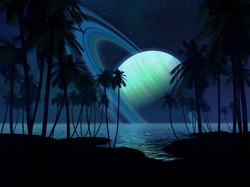 The Just Beyond asks what has always seemed to me a natural question, deceptively hard to answer. If there really is an afterlife and you're fortunate enough to get there...what are you going to do? The question is probed at greater length if not more eloquently in the book, but to boil the problem down, it goes something like this. When you think about it, everything we do in this mortal life is bound up with our physical bodies. Note, I didn't say everything we care about, I said everything we do. I can think of plenty of moral and artistic values we care about that seem primarily spiritual. Back to that in a moment, but to finish the first point. Suppose, as most believers do, that in the afterlife the body and its requirements are transcended. No more pain, no more injury, no more disease, no more fatigue, et cetera. Having surpassed the physical, there's no need or reason to eat or drink, or sleep, or arrange for shelter, or have sex. Presumably no babies are born in the afterlife, so that last is doubly useless. (Is that really an afterlife I want to live in? I'm not so sure. lol) You don't need money, because you don't need anything at all just to survive, so you surely wouldn't work at anything you didn't find worthy on its own merits. But would you even do the worthy things? For a while, sure, assuming you could; maybe for a very long time. If you've always loved skiing, maybe you climb the highest mountain and schuss down it one zillion times. No lift needed, you wouldn't get tired and you'll never run out of time. But what's the cutoff point? At a zillion and one, have you finally done down every possible path, had every possible experience, maybe had each of them a thousand times, or a million...does the compulsion to do this at some point stop? The same is true of any activity. How many songs can you write or paintings can you make before you're out of ideas or enthusiasm or both, a billion? A trillion? And what are you going to paint or sing about? If the Earth is behind us, the sick are made well, there's no more poverty, war, hard luck, or romances gone bad, what's your material? Even if you have an answer, how long can you stretch it out? A billion years is a very long time--almost twenty times as long as it's been since the dinosaurs went extinct--but compared ti Eternity it's not even a nit. Most people when they think of afterlife envision themselves communing with loved ones or acquaintances long lost. That is a terribly noble and worthy picture. But think about it. After a while, and I mean a long, long period of doing that...what are you going to talk about? There won't be any family secrets or celebrity scandals. There won't be any politics or issues of general concern. There won't be any news, either about the world or about you and your loved ones; given enough time, everything that can be said will have been, and there's no more coming. No marriages or births or deaths or misfortunes or runs of increble luck. All that stuff arises from the mortal human condition. I know people who imagine themselves just standing in the Heavenly pews singing praises to God as their afterlife activity. I'm not going to argue with that, it sounds nice, wholesome, worthwhile, enchanting, and probably well-advised. :) But the same analysis applies even there. Are you going to do nothing but sing in church for all eternity? Is that really what your whole existence was all about? The Just Beyond begins to answer this question, and the trilogy when complete will give the most logical and satisfying answer I've been able to work out--and I've given this a lot of thought. :). Even so, I've been harboring a terrible secret. Because I realized somewhere along the way that my answer, as reasonable and carefully constructed as it was, ultimately fell to the same criticism I've outlined above. My scenario works for a long time, a very long time, and explains everything from the purpose of mortal life to the ultimate fate of good and evil...but then, after all that has been said and done, philisophized about and settled...in comes Eternity again. And it's just about impossible to think up a scenario that truly conquers ALL time. I knew this, and I thought the books would come close enough to feel they had achieved it as far as one reasonably could, and I had set the problem far aside, on a small table in a dark basement room in another house, never to be thought about again. :) And then, suddenly, it came to me...an even better way. An answer that went beyond my hard-crafted paradigm, as full and coherent as it was. An answer that seems like it could be eternal, and if not, comes close enough to blur the distinction between perfect and very, very, very, very good. :) What is it? Read the books. I hate to leave it at that, but on the other hand this is the sort of thing, obviously, that can't be fully revealed until the final pages of the final book. With any luck I'll have that written by the end of next year. Meet you at Beyond All Else, and you can let me know how I did. :) - Mark If the Sun were the size of a basketball... Setting aside the quote above for the moment--it's not related to this question--how long would it take to walk from the Earth to the Moon? Assuming a suitable road, space suit, and a sustainable pace with breaks for eating and sleeping, of course.
It works out to about 30 years. Not bad at all. How long would it take to walk to the Sun? You'd need a good deal more sophisticated suit, but if you had one, and could spare the time... about 12,000 years. That actually surprises me in how relatively short it is given the 93 million mile distance. 12,000 ago is just about the time the first humans migrated over the Bering ice bridge to North America. If they hadn't stopped to found the Maya, Inca, and other Native American cultures, they could have made it to the Sun by now. This is the kind of thing I figure out in my head to put myself to sleep at night. You can do this one. If the Sun were the size of a basketball... how far away from it would Saturn be? :) If that's too easy by itself, work out all the planets... and what common items they would be the size of... You can do it without a calculator. :) - Mark the truth turned out to be so outlandish no one would have even suggested it. 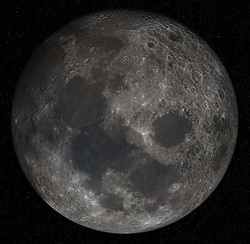 Theia was a real planet, about the size of Mars, that orbited our sun when the solar system was new alongside Venus and Mercury and the Earth. We don't talk much about it now, because we don't see Theia as she was. But Theia is still there. It would be cool if I could tell you that Theia was obliterated in a mighty collision that blasted her wreckage into the rocky ring between the orbits of Mars and Jupiter that we call the Asteroid Belt. Alas, science has pretty much proven that the asteroids aren't remnants of a planetary explosion but just bits of flotsam left over from that same era, kept from ever forming a planet in the first place by Jupiter's gravitation. No, Theia didn't fracture into a ring of invisible smithereens. Theia's story is much more intimate to us. Theia crashed into the Earth. The Earth has been hit by large astronomical bodies many times. But this one was unique. The sheer size of Theia puts this cataclysm in a class all its own. Compared to Theia, the six-mile thick chunk of stone that killed the dinosaurs and ravaged Earth's climate for a million years was a BB. It took analysis of mineral samples brought back by the Apollo flights to reveal this amazing story. Before then, the origin of the Moon was a matter of educated speculation. The most accepted theory was that the Earth had "captured" a passing planetessimal that wandered into its gravity well by chance. There were problems with that theory, but there were worse problems with every other theory. And without physically examining the Moon up close, the mystery could not be solved. To make a long and complex story short, here's what the chemistry of the Moon rocks revealed. Some time more than 4 billion years ago, when all of the sun's terrestrial planets were lifeless worlds of fiery meteor showers and violent vulcanism, Theia and our Earth crashed together. But Theia didn't become our Moon. Earth was larger, but Theia was large enough to hold her own in the contest, and both planets were severely disrupted. Theia did shear into molten fragments, but the crash also blew out a huge section of our planet. As gravity sorted the pieces, the heavier minerals of Theia merged into the Earth, and the lighter minerals from both of them scattered out into space. It was this material--the lighter stuff from both worlds--that ultimately coalesced under its own gravity to become our Moon. The bulk of Theia is still with us...we're walking on her. :) Theia's name is borrowed from the ancient Greek Titan of Light, said to have been the mother of the Moon. In that scenario its father was the Earth itself, and now the two lunar parents are bound in an embrace that will last till the end of time. And we can thank her for our seasons. It was the Theia collision that knocked Earth's rotational axis off-kilter from the plane of its orbit around the sun, creating the variance in sunlight that changes summer into fall, winter into spring. With all the wild theories of the Moon's formation that predated Apollo, the truth turned out to be so outlandish no one would have even suggested it. Scientific discoveries so often go that way. Good fiction tries, but half the things that have been discovered in the hundred years since Einstein would have been laughed off the page if someone had made them up for a book. The cosmos itself will probably always be the world's best storyteller. - Mark It's not a particularly rare event, but I had never personally looked at it through my telescope before. Busy day today--not much time for a thoughtful post, but something fun did happen and it ties in with yesterday's piece. Our living room ceiling goes all the way up to the second story and there are two large windows high up on a gabled wall from which we can see high up into the sky. Around dinner time this evening, the sky a fading cerulean twilight, the moon appeared in those windows and very near it, what looked like a faint star. Knowing that what looks like a faint star in an otherwise starless firmament must actually be a very bright object, I wondered what it was. It only really could be one of three things: a truly bright star like Vega or Rigel, or one of the two planets that appear brighter than any star: Venus and Jupiter.
I didn't think it was Jupiter, because I tend to keep an eye on it from night to night and I didn't recall it looking like it was going to approach the Moon. But I didn't think it could be a star either; it's very odd for only one actual star to show up in the sky, but quite common for the planets to appear before the sky is dark enough to see any stars. I don't keep tabs on Venus--I don't actually study the sky on a regular basis and Venus moves too fast to really track, besides which Venus is so bright and large in appearance it's hard to mistake it for something else; there's no need to track something you will always know when you see it. But it looked a bit too high in the sky for Venus, which never appears too far from the horizon because it's so close to the Sun and in order to see it, the Sun has to be somewhere near setting or rising. So the most likely candidate was back to Jupiter, and that did make sense; Jupiter has been churning its way slowly across that part of the sky for weeks. I had to be sure though, if for no other reason than the fun of it. So as soon as it was dark enough I chugged upstairs and took my telescope out on the second floor deck outside my studio and pointed it at the spectacle. And there it was, the confirmation: Jupiter's moons. Jupiter has four moons large enough to be easily seen with an amateur telescope or even a good pair of binoculars, tiny white dots that appear in various positions around the planet like bees around a hive. I could see two of them clearly and thought I could see a third when I was able to keep still enough. And there it was, a delightful astronomical oddity--our Moon, a little larger than half phase with its mares and craters showing up sharp and crisp in my telescope, and within the same image mighty Jupiter and its own moons far away. It's not a particularly rare event, but I had never personally looked at it through my telescope before. It's just a little thing, but this is the kind of food for the soul that brought me to this little beach town in the first place. Between clear night skies overhead and the majestic thrashing of the Pacific at my feet, it just feels like this is the Place in the universe where I'm supposed to be. :) - Mark The Cygnus X1 black hole is 7 billion times the mass of our sun and has a diameter the size of the orbit of Pluto. 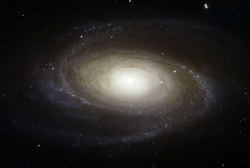 I've always been fascinated with the night sky. As a kid I used to take my guitar out into the front yard and night to sit on a brick step and play where nobody could hear me but the stars. It was an inspiration like no other. Now I have a decent amateur telescope, a Meade Polaris 6-inch reflector, and live in one of the least populated areas of the country where the heavens shine in all their glory undiluted by city lights. I grew up in a small town with relatively dark skies, but living in Seattle for decades I had forgotten just how brilliant and stunning the cosmic scene could be. One of the first things I did when we got settled down here was grab my star atlas and look for the Andromeda galaxy. It's the one in this picture, the iconic Hubble Space Telescope image, the galaxy we tend to picture in our minds when the word is mentioned. Among the billions of galaxies we know about, Andromeda is remarkable in several ways--unique, in fact. First, it is the closet major galaxy to our own (discounting two small satellite galaxies that revolve ours like moons). Second, it's the only galaxy outside our own that can be seen with the naked eye--though you need ideal conditions and a good idea both where to look and what to look for. Third, and this is the one I find the most mesmerizing: Andromeda is not receding from the Milky Way. It's heading toward us. The world was shocked when Edwin Hubble discovered in 1923 that some of the amorphous blobs in the night sky were actually "island universes" separated by unimaginable distance from the one we live in. The aftershock was just as great six years later when Hubble found that the univese was expanding: every galaxy in the cosmos was racing away from us at tremendous speed. Well, not every galaxy. Andromeda, of the same class and somewhat larger than the Milky Way, is on a collision course with us. It's going to happen. One day in the distant future Andromeda and the Milky Way will collide, eventually fusing into a single system with each of its constituents' original shapes obliterated by the crash. It's nothing we should worry about though: significant gravitational contact between the galaxies is four billion years away, and by that time our sun will be starting to run out of hydrogen and preparing to explode. If the human species survives to see the galactic fusion, we'll need to have found someplace else to live.) Andromeda isn't too hard to find. Everybody knows the constellation Cassiopeia, the big W, and the second dip in the W points right to it. Part of the constellation Pegasus lies just a short ways (visually) below the W, looking like a very long, thin V lying on its side with a bend in each spoke like knees on a pair of legs; and if you look just above the uppermost knee, the one closest to Cassi's W, Andromeda is there, looking like a very faint grey oval splotch. I can find it now without the telescope, and even that gives me the same shudders I felt when I first caught it in the lens. It scares me. Andromeda is 2 million light-years away--so what we're really seeing is how it looked 2 million years ago--and the fact that we can see it at all over that astonishing distance gives an indication of what a truly massive object it is. The enormity of it gives me the creeps. And the knowledge that it's bearing down on us--that one day our entire sky will fill with an image like the one above--is mind-blowing. There are nights I can't even look at Andromeda because the sight of it shakes me that hard. Honestly, though we can see it, I don't believe we can't really picture it, how vast and complex and full of secrets our neighboring galaxy is. And Andromeda is hardly alone in inspiring that kind of awe. I read a lot of science books and I recently finished one about the discovery of pulsars and confirmation of the existence of black holes in the 1970s and 80s. You don't have to delve far into that subject matter to find things even more frightening than a galactic crash. The very first black hole discovered--a massive X-ray emitter in the constellation Cygnus--is just terrifying. It wasn't discoverd first for no reason: it is GIGANTIC. The Cygnus X1 black hole is 7 billion times the mass of our sun and has a diameter the size of the orbit of Pluto. There's not time or space here for me to give a full explanation of black holes and what these statistics imply, but if that description doesn't drop your jaw then you don't understand it or you're not paying attention. :) I don't think the human mind is capable of truly comprehending things like galactic distance or the reality of black holes, just like we can't picture a four-dimensional object or truly understand concepts like time and infinity. And there's the tie-in to The Just Beyond. The book deals with these subjects, and the trilogy, primarily the final book, is going to involve black holes and cosmological topology in a way that's intimately integrated into the plot. And the reason for that, it will be no surprise, is my utter fascination with these concepts that strain our mental capacity. I find them every bit as awesome and humbling as the concept of God...and, like the professor Dan Hendrick in the first book, what it really comes down to is that I see them as the same thing. We don't need movies and novels to expose us to divine power beyond our ability to reason: the night sky surrounds us with it. The science fiction of its nacent years gripped me in a way that most of today's writing does not, and it's not just because I was young. Under the pressure cooker of the Cold War, with the Apollo Program placing space exploration front and center on the human agenda, and with the rash of new discoveries and speculations about concepts like black holes and extra dimensions creating a pervasive sense of dark mystery, those stories made it feel as though a reality right out of the Twilight Zone might confront us around every corner. And the thing is--if you really make an effort to understand what science has revealed over the past century--it has. I'll never be an Asimov or Clarke or Bradbury. I don't have that kind of genius. But I'm shooting at least to create a similar feeling with the Beyond books. And I will make at least one more attempt to write a solid straight science fiction novel. I'll do it as soon as I'm confident I have The Right Idea. With my science books and my telescope, the bright image of Jupiter gazing down through the window when I wake up at night, there's no lack of inspiration. :) - Mark the vast majority of games, even the shooters, cast the player in a moral role, a part in the story that in a movie would have been played by John Wayne or Gary Yesterday's post got into the current gun control discussion, and I promised to finish with my take on whether censoring video games should be part of the answer.
I didn't have a computer when I was growing up, mainly due to the fact that I was not a NASA scientist or a student at MIT. :) But I was always into games. I had all the old cardboard Avalon Hill wargames and loved them like a cheap toy with mortars and half-tracks that nobody else cared about... which they were. At an even younger age I had cap guns, squirt guns, home-made rubber band guns (remember those?), and plenty of similarly armed friends to play "war" with. We used to romp around vacant lots or horse pastures peppering each other with imaginary bullets and using dirt clods as hand grenades. All the kids did that--the boys, anyway. It wasn't the only thing we did--we played baseball and collected insects and ruined our shoes playing in the creek exactly as we had been told not to--and there was nothing particularly different or special about playing "war", "spies", "cops and robbers", "cowboys and Indians", or any other pastime that involved simulated weaponry. We didn't think of it as literal killing. We did it because it was fun. And to the best of my knowledge, none of us was ever inspired by that horseplay to gun down real people. There are some parents out there that don't let their children play with toy guns (and I respect that, though I don't agree with it), but most reading the above will view those boyhood antics as harmless. Many of those same people, however, find themselves mortified at the explicit carnage they see in video games. And they conclude, with conviction as ironclad as though they were social scientists with a solid clinical study proving the point (which they aren't), that such play necessarily warps the mind and leads to mass murder just like marijuana leads to heroin. People with that belief all have one thing in common: they're not gamers themselves. They will concede, the majority of them anyway, that chucking dirt clods at your schoolyard friends and yelling "kaBOOM!" is just normal kid stuff, but they view playing a video game with molotov cocktails made out of pixels of light as a moral hazard. (Word: I'd rather be fragged by a rocket-propelled grenade in a computer shooter than beaned in the head with an actual dirt clod. For reals.) All that video violence HAS to have a deleterious effect, they're sure--to them it seems self-evident. Their perspective is perfectly understandable--and completely wrong. As evidence, they'll point out that many of the disturbed young men who have carried out mass killings in the past few years were avid video gamers. And this is entirely true. It's bound to be, because the vast majority of kids these days ARE avid video gamers. The fraction of them, even the fraction of those who favor weapons-oriented games, who go on to shoot people in real life is infinitessimal. The alleged cause-and-effect simply isn't there. Healthy, mentally balanced people do not commit senseless murder--whether they are gamers or not. Those who do perpetrate such atrocities are almost always afflicted with some form of psychopathology--again, whether they are gamers or not. Video games may focus the morbid tendencies inside the already sick minds of those individuals, I can't say that they don't. But games will NOT turn a normal human being into a frothing killer. We have laws against the possession of guns by people who would represent an inordinate risk by having them--children, felons, and the mentally incompetent. We restrict access to certain ingestibles and forms of entertainment in a similar way. I support that approach, and see no reason why it shouldn't extend beyond movies, magazines, alcohol and tobacco to include games as well. I also see no reason games should be carved out of that mix for especially severe treatment. I play a lot of computer games, and I can tell you I've never seen anything in a game that surpasses the brutality in movies like Braveheart or A Clockwork Orange, to name two completely random examples. Yet people who would never support banning that kind of motion picture feel it's blatantly obvious that the exact same content should be forbidden in games. How are they able to hold these objectively inconsistent views? Because they're not gamers. Because they're making assumptions regarding something they know nothing about firsthand. The common argument for singling out games is the element of participation. Again, this is a misunderstanding of the medium arising from ignorance. The opposite is actually true. I find violence in movies much more offensive and emotionally stressful than in games BECAUSE of the participation element. Just because I can hack a computer character to bits with a machete doesn't mean I will, and in fact I have played through Far Cry 2 dozens of times having never once hit an enemy with my machete or the flamethrower. I even feel bad when I hit them with a bullet anywhere except the head, which produces an instant and presumably painless fictitious kill. The game doesn't make me someone I'm not, in fact I conduct myself morally even though I'm completely aware the events on the screen are not real. That's the style of play I find enjoyable. By contrast, when brutality happens in a movie, I'm helpless. There's not a thing I can do about it except sit by and watch, turn it off, or get up and leave. In a game, I can actually influence things for the good. And while many non-gamers may not be aware of this, the vast majority of combat games cast the player in a moral role, a part in the story that in a movie would have been played by John Wayne or Gary Cooper, Mel Gibson or Orlando Bloom. I'm not a blind advocate on this issue and I concede that games can have a desensitizing effect. Something that seems horrifying the first time you experience it doesn't have the same impact the 20th time down the road. But the same is true of any cultural influence--movies, song lyrics, oil paintings, real-world war coverage on CNN. Games are not some special case where this effect is singularly onerous. And again--as with every other stimulus mentioned in today's and yesterday's posts--this desensitization does not make murderers out of mentally healthy people. Most rap music fans don't shoot police officers or beat their girlfriends and most gamers don't go on killing sprees. In both cases, the few who do are psychological outliers--and this, not their choice of entertainment, is where our concern belongs. Games are not the problem. Guns are not the problem. Games and guns in the hands of the mentally ill are the problem. And that's where solutions must aim. The idea of taking Halo and Far Cry off the market in response to incidents like Aurora and Newtown is just stupid. Worse, it has no chance whatsoever of fixing the problem. For every lone, sick kid who plays Hit Man and then shoots up a school in real life, there are millions of kids who find such games entertaining and go on to peaceful, productive lives. And we should focus this discussion where the real problem lies. Indiscriminate censoring of video game content would make a lot of (clueless) people feel good, but it wouldn't actually do good. It would merely punish lots of positive, well-adjusted players who enjoy this truly harmless pastime. - Mark I was dazed and listless for two days after I wrote the airplane escape scene 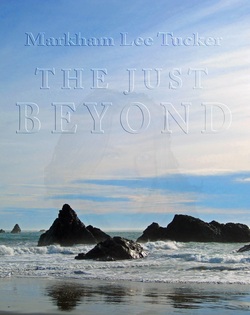 "No tears in the writer, no tears in the reader." When I first ran across this gem of advice, a lightbulb went on. I had never thought of it before. But it's sooo true. If the author isn't as genuinely engaged with the characters and story as he expects the reader to be, the falsity will show. How dare we expect readers to swoon over a book the author views with detachment? Moreover, we mustn't forget that publishers and agents are readers too, and they're even more likely to spot and reject a book on the basis of insincerity. That quote gave me license to write not just a technically sound novel, but an emotionally personal one. And I did. It's partly because many of the book's vignettes are based on events in my real life, but even more because I so took the protagonist to heart. I'm not equating myself with Michael Chandler--I could never do many of the things he does--but I related to him deeply. Michael is like the uber-me, the person I would want to be in an ideal world. My "tears in the writer" were literal. I was dazed and listless for two days after I wrote the airplane escape scene. I was so choked up I couldn't even write. After a couple of days though I realized that the cure was not to suspend writing, but to continue. I had to get Michael to a better Place. Even now, four months after completion, I still cry when I read certain parts. Of course, I cry at the dance scene in the movie Napoleon Dynamite, so maybe that's not saying much. But at least it's heartfelt and real. And there have been tears in the readers, too. Several participants in my readers group as the book was being written told me they cried over certain parts. Nothing relating to the book has thrilled me as much as that. My greatest hope for The Just Beyond is that it will engage, uplift, and inspire people. The proof will come in the comments readers make when it's released, but I'm gratified with the above indications that I have lived up to that standard. :) - Mark If I had given three months of exclusivity to every publisher I approached with The Just Beyond, it would have taken 12 years. 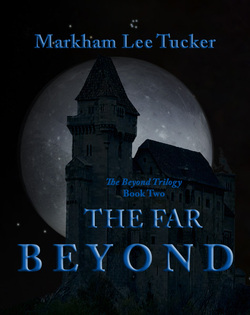 Everyone has asked themselves this question at one time or another. Here's what I learned in writing The Just Beyond. Some writers relish the experience of writing in itself, and these people have a leg up on getting published. If you write largely for the pleasure, you're not likely to abandon a book half done or to stop writing in the face of rejection. If you're in that rarefied category, you can stop reading this now. I wish I had that kind of constitution. I don't. I fall in with the majority of prospective authors who would relate to the statement: "I hate writing, but I love having written." This post is aimed at them. The most important thing is stamina. It's fun to plan out a prospective book (if you even do that) and the writing is a kick at first. After a couple of chapters however (if you even get that far), you'll inevitably hit a wall of writer's block, loss of interest, or fatigue. If you can't plow through that, not just once but repeatedly over the long haul, it would be better not to have started. This is far and away the most common cause of project abandonment. Most people just can't sustain the gruelling focus for as long as it takes to finish. Second, you need something distinctive to say--a compelling, well thought out, and original idea. Don't just assume you have one--do your research. Look into books already out there in your genre and be prepared to articulate how yours is, if not better, at least distinctive. Publishers want to know why people would buy your book if it's already been done. At one point while writing The Just Beyond I was mortified to realize it had a good deal in common with Richard Matheson's iconic What Dreams May Come. I had only seen the movie--one of my favorites--and in desperation I got my hands on the book itself to determine exactly how and to what extent mine might seem derivative. Upon inspection I was able to establish, to my own satisfaction at least, that the overlap was low grade. The type of story was completely different, my vision of the Afterlife wasn't as similar as I had feared, and the climax and overall impact of the two books were miles apart. The strongest tie was a general validation of love and the human spirit, and that fell well short of neutralizing The Just Beyond's originality. Finally, you need commitment. Writing reigns supreme among the arts in terms of deferred gratification. It takes six months to a year to write a standard length novel, and that's just the beginning of the process. Seeking an agent or publisher is a molasses-slow drudgery. Most agents want nothing to do with new writers, and publishers typically take several months to a year to get to your query letter. It's much worse if you respect some publishers' prohibition against simultaneous submissions (sending your proposal to several publishers at the same time). I don't--I think it's paranoid, unrealistic, and ridiculously unfair. Do they really expect us to wait out their sluggish review processes one at a time? If I had given three months of exclusivity to every publisher I approached with The Just Beyond, it would have taken 12 years. Yet even with simultaneous submissions, working to sell a book is thankless, soul-wounding tedium. Unless you happen to win the manuscript lottery--you're more likely to be struck by lightning while riding a unicycle on the back of a unicorn--you will get rejections. Lots of them. I wrote my first novel years ago, a science fiction story called The Judges of Beta Librae, and after six rejections I abandoned it out of discouragement. As a result I'll never know whether it might have sold had I been properly tenacious. If you remain unfazed by all of the above, the answer to the question is...YES. By all means, get started on that book today! I wish you every success, and if you're able to overcome all of these daunting obstacles, you deserve it. - Mark |
Once upon
|
| The Just Beyond |
|
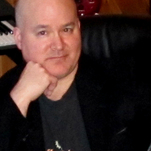
 RSS Feed
RSS Feed
